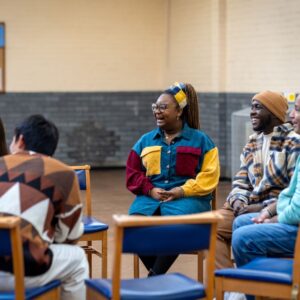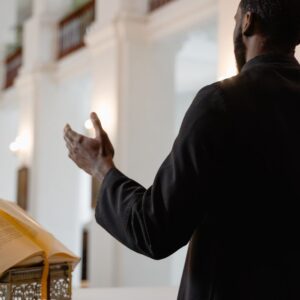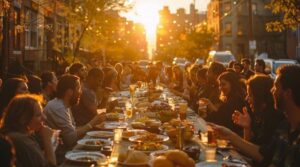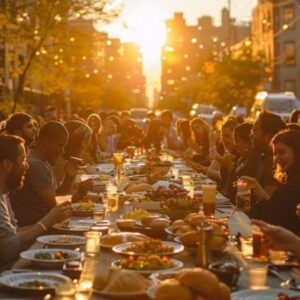One of the ways we can cultivate resilience as we engage with one another is to notice how we show up in our communities. Dr. Ron Ruthruff, Associate Professor of Theology and Culture at The Seattle School of Theology and Psychology, shares his thoughts in a collection of three stories.
Joel Aguilar is my dear friend. We have been plotting and planning when it comes to training young urban leaders for well over ten years. Additionally, over the last five years, we have been teaching the Guatemala global partnership class together for The Seattle School. The students on these trips love to listen to Joel, as he tosses anthropology, global politics, and theologies of liberation into conversation on a bumpy 2-hour bus ride. One day as we traveled to the memorial of a martyred priest, the students began to reflect on the idea of calling and the calling of God to a murdered priest. Joel kindly corrected them: “I don’t believe God calls you, it is the community that calls you, and if the community calls you they will affirm and support your calling.”
I was driving up the I-5 corridor on a very snowy February day, with my new colleague Gideon Ochieng. Gideon is from Kenya and served with us at New Horizons, a homeless youth organization in Seattle, while he completed his master’s degree. The usually 90-minute trip to Burlington would take far longer with so much snow on the highway, so Gideon and I took the 30-mile-per-hour pace as a sign we should get to know each other better. I remember somewhere in the conversation, I pushed a bit to get beyond Gideon’s gracious manner.
“Gideon,” I asked, “You’ve been in the states enough times, and now you’re working with us every day…What’s the one thing that drives you crazy about North Americans?”
Gideon politely dismissed the question. Choosing instead to focus on the community where we worked, he quickly affirmed how welcoming and friendly we all were to himself and his family when they moved to Seattle. But after a bit of kind prodding, he finally blurted out,
“You really want to know?”
I responded with a quick affirming, “YES!!!”
“Ok,” he said, with a certain amount of resignation, “You, not all of you, but you white Americans, do a lot of talking at the meetings you’ve been invited to.”
I laughed, and asked, “Well, haven’t I been invited to share my opinion?”
“No,” Gideon replied. He went on, “Don’t you think, if someone has the authority to invite you, they might have a better idea than you as to why you have been invited and what they want you to contribute?”
I sat back in the driver’s seat, my position in the car reminded me of a cultural narrative that shaped me. I wondered what it would be like to be invited, called, and to relax into a trusting relationship that helped me discover why I was invited in the first place.
One of my favorite places to preach is Lake Burien Presbyterian Church. I am often invited by Pastor Lina Thompson. But the last few times I have preached there, I haven’t preached alone. I am invited to a table with Lina and other community members, where preaching is a conversation. Lina is building resilient leaders by moving from a podium to a table and allowing all of us the luxury of a limited and located perspective. Lina’s pastoral philosophy and practical approach is one of collective resilience and it is producing collaborative community change.
What do these three stories have in common? They all challenge some of my socially constructed and unexamined ideals around call, leadership, and what it takes to do good work in my community. Implicit constructs that only see very individualist models of leadership. Models shaped by myths of our own exceptionalism, imprisoned by our own ideas of what works best and blind to the idea that we go further together. I tell my students often, by acknowledging my limited capacity, I actually make room for another’s agency. Engaging in communities of resilience could mean being willing to accept my limitations and allow a community to call me, letting that same community articulate what they need from me, and relaxing into being one of many located and limited voices around a shared table. I believe this approach builds resilience because it is deeply interdependent but necessary to sustain good work in the community for a long time.
About the author:
Dr. Ron Ruthruff is the Associate Professor of Theology and Culture at The Seattle School of Theology and Psychology and a senior fellow with Street Psalms, a global network training incarnational leaders. For 27 years Ron, with his wife Linda, served marginalized communities and street-involved youth. Ron is the author of two books: The Least of These: Lessons Learned from Kids on the Street, and Closer to the Edge: Walking with Jesus for the World’s Sake. Ron and Linda live and raised their two sons in Rainier Valley, a multicultural neighborhood in south Seattle.










0 Comments